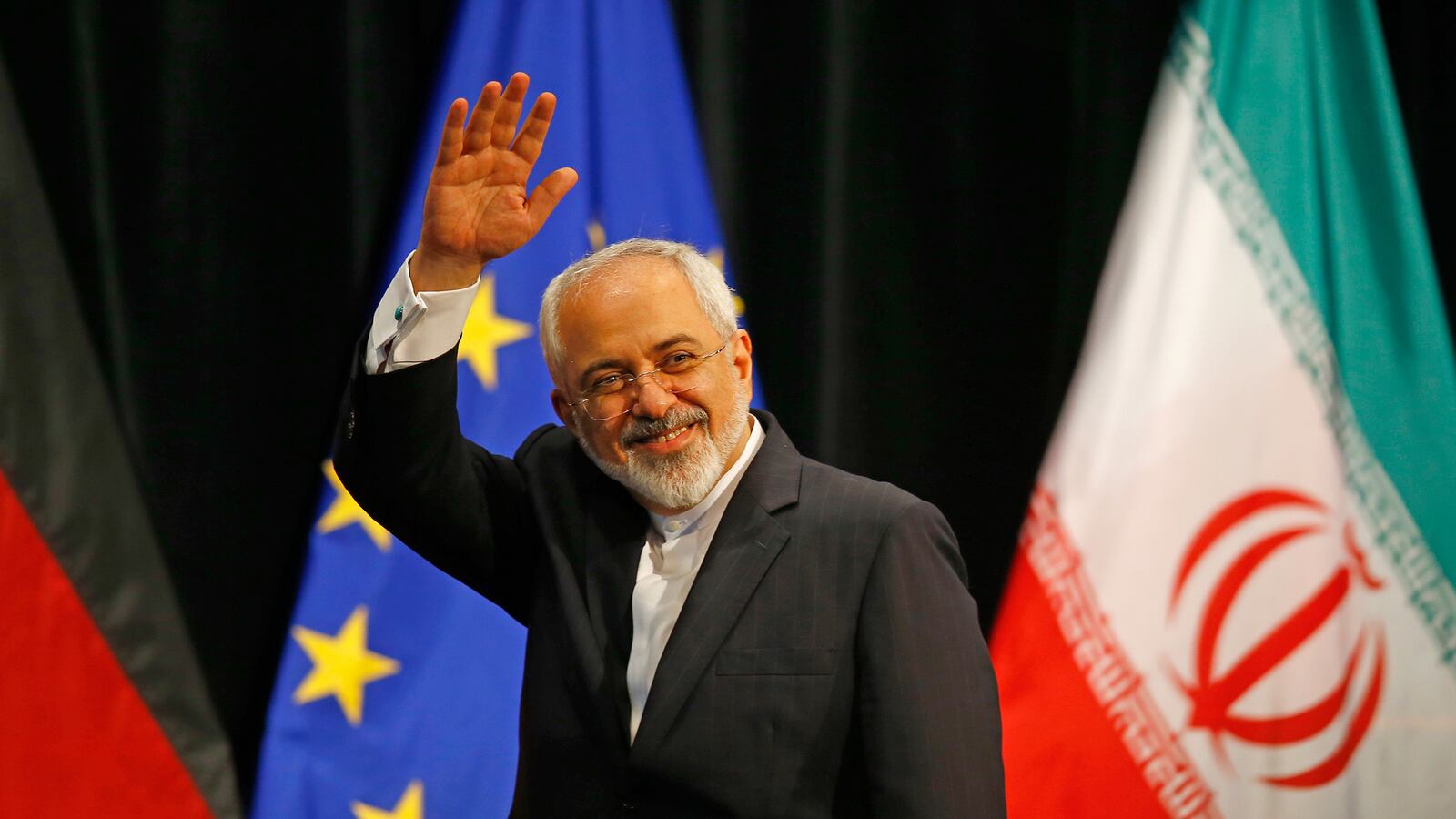As Congress takes up the Iran nuclear deal next month, it ought to confront this paradox: The agreement allows the Iranians to do something Americans can’t—sell oil to the rest of the world.
Don’t get me wrong. I support the deal, under which Tehran would stop enriching weapons-grade uranium for the next 15 years in return for relief from economic sanctions. It’s not perfect, but President Obama is right that it’s better than what we’d have if his conservative critics got their way—no deal, leaving the Islamic Republic on the brink of acquiring nuclear weapons.
Still, freeing Iran to crank up its oil exports stands in stark incongruity to what’s happening here at home. Domestic oil production has soared by an amazing 68 percent over the past decade, yet we can sell very little of it abroad thanks to outdated laws banning U.S. oil and gas exports.
Passed during the energy crisis of the 1970s, these laws were intended to protect the nation’s then-dwindling oil and gas resources as a strategic reserve against supply disruptions like the Arab oil embargo. But the premise used to justify this deviation from our country’s free-trade principles—energy scarcity—has been shattered by America’s shale boom.
Now the United States is estimated to have a least a century’s worth of natural gas, and likely more. Last year, America momentarily passed Saudi Arabia and Russia to become the world’s biggest oil producer. And despite plunging oil prices, U.S. companies have managed to hold production this year fairly steady (over 9 million barrels a day) by becoming more efficient.
The global oil glut, however, is dampening U.S. energy investment, industry profits, and job creation. The forecast is for more of the same, owing to a combination of slow growth in China and Europe, falling U.S. demand and the return of oil-rich Iraq and Iran to world crude markets. Not that U.S. consumers will mind: White House economists estimate that the average family will save about $700 this year from lower gas prices.
Whether prices rise or fall, the United States won’t be able to reap the full benefit of its shale energy windfall so long as anachronistic laws lock our exports out of global markets. Yet the White House shows little urgency about repealing them. In fact, energy remains the great exception to Obama’s second-term push to open markets and expand trade.
Over fierce opposition from unions and globophobic activists, his administration is negotiating sweeping transpacific and transatlantic trade pacts aimed at boosting U.S. exports and growth. A clear commitment to lifting America’s export bans would make Obama’s efforts to curb foreign protectionism more credible and consistent.
It would also strengthen the U.S. economy. Opening foreign markets to U.S. gas and oil would stimulate more investment and production, especially as prices rebound. This would boost economic growth, create tens of thousands of jobs that pay decent, middle-class wages and have a moderating effect on prices at the pump, which are benchmarked to global crude prices.
Surging U.S. production already is reshaping the world’s geopolitical landscape, adding to America’s arsenal of “soft” power while undercutting the economic leverage of petro-states such as Russia, Iran, and Venezuela. U.S. net oil imports have been cut nearly in half, reducing our trade deficit and making our economy less vulnerable to supply disruptions and price shocks.
Allowing U.S. oil to flow into world markets also would enable our friends and allies to diversify their energy portfolio and reduce their dependence on unstable or unfriendly suppliers. Japan, for example, imports about 83 percent of its oil from the Middle East. European leaders, leery of the continent’s heavy reliance on Russian gas and oil, are calling on Washington to ease restrictions on U.S. energy exports, and to add an energy chapter to the Transatlantic Trade and Investment Partnership (TTIP) agreement.
The idea that America can at last achieve “energy independence” by hoarding its now abundant fossil resources is a strategic delusion. “If war in the Middle East, or the actions of a powerful regional hegemon seeking to blackmail the world should cut the flow of oil from the Middle East to Europe, India, China and/or Japan, the economic consequences to the United States would be enormous,” the historian Walter Russell Mead told Congress in recent testimony.
U.S. policy should aim instead at promoting energy security. In addition to diluting the ability of any resource-rich nation to manipulate oil prices or restrict supplies, rising U.S. exports would provide a politically stable and reliable source of energy and thereby help to make global markets more resilient against conflicts or natural disasters.
Opposition to lifting the export bans comes mainly from environmentalists, who fear that the glut of cheap gas and oil will delay the growth of costlier renewable energy options like wind and energy. This is a reasonable fear, but it’s best addressed by pricing carbon accurately, not depriving Americans of the economic and security benefits of energy abundance.
The export bans are likely to figure prominently in the coming debate on the Iran nuclear deal. A key lawmaker, Senate Energy and Commerce Committee Chair Lisa Murkowski (R-Alaska), is flagging the issue. “The general prohibition on exporting domestic crude oil amount to a de facto sanctions regime against U.S. producers,” declares a committee staff report.
President Obama can defuse such criticism—and strengthen the case for the deal—by leading the charge to restore free trade in energy.
Will Marshall is the president of the Progressive Policy Institute.






